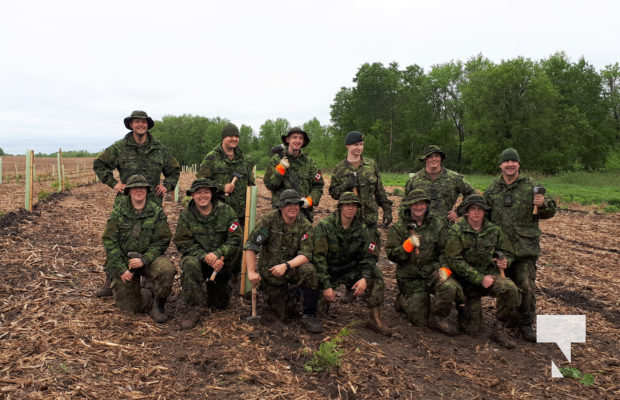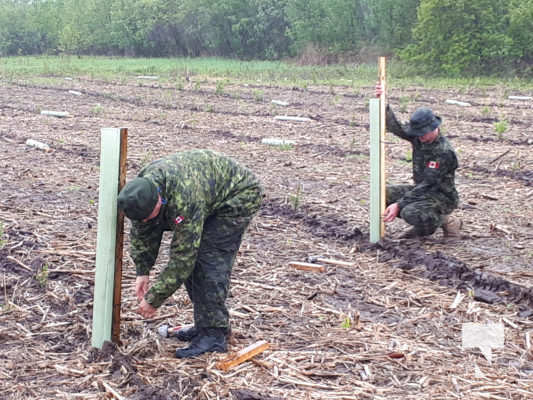This week marked the launch of an exciting 3-year project for Lower Trent Conservation’s ecological stewardship and conservation lands programs. The Murray Marsh Natural Habitat Area Restoration Project will see approximately 9 ha of natural buffers, consisting of over 12,500 native trees, planted to protect and enhance the ecology of Murray Marsh.
In 2014, the Murray Marsh Natural Habitat Area Management Plan identified the need for natural buffers to protect wetlands from agricultural impacts and provide habitat for a number of diverse reptile and amphibian wildlife species that depend on uplands, in addition to wetlands, to achieve their natural life cycles.
Murray Marsh is situated in the heart of the Lower Trent Conservation watershed region, along the Trent River. Due to its size (3,760 ha), diverse habitats, rich biodiversity and hydrological importance, Murray Marsh is designated as a Provincially Significant Wetland and a Life Science Area of Natural and Scientific Interest.
This week staff with Lower Trent Conservation planted 6,500 native tree species including cedar, spruce, pine, oak, tamarack and maple at Murray Marsh in conjunction with the restoration project. Additionally, with thanks to the Highway of Heroes Living Tribute, the authority connected with a dozen troops from The Hastings and Prince Edward Regiment (aka Hasty P’s) to install 800 tree shelters for the more delicate deciduous species.
“Community shared resources, such as clean water and healthy wetland habitats, will be better protected thanks to the planting and sheltering of these natural buffers”, says Lower Trent Conservation CAO Rhonda Bateman.
“We are extremely grateful to volunteers from the Hasty P’s for enthusiastically stepping up to assist us with this project and hope other community organizations will be as eager to join us for future plantings associated with this project in the years to come.”
The Murray Marsh Natural Habitat Area Restoration Project is slated for completion in 2021. For more information on the project or to lend a hand as a volunteer contact Lower Trent Conservation at 613-394-4829 and visit http://LTC.on.ca.
























